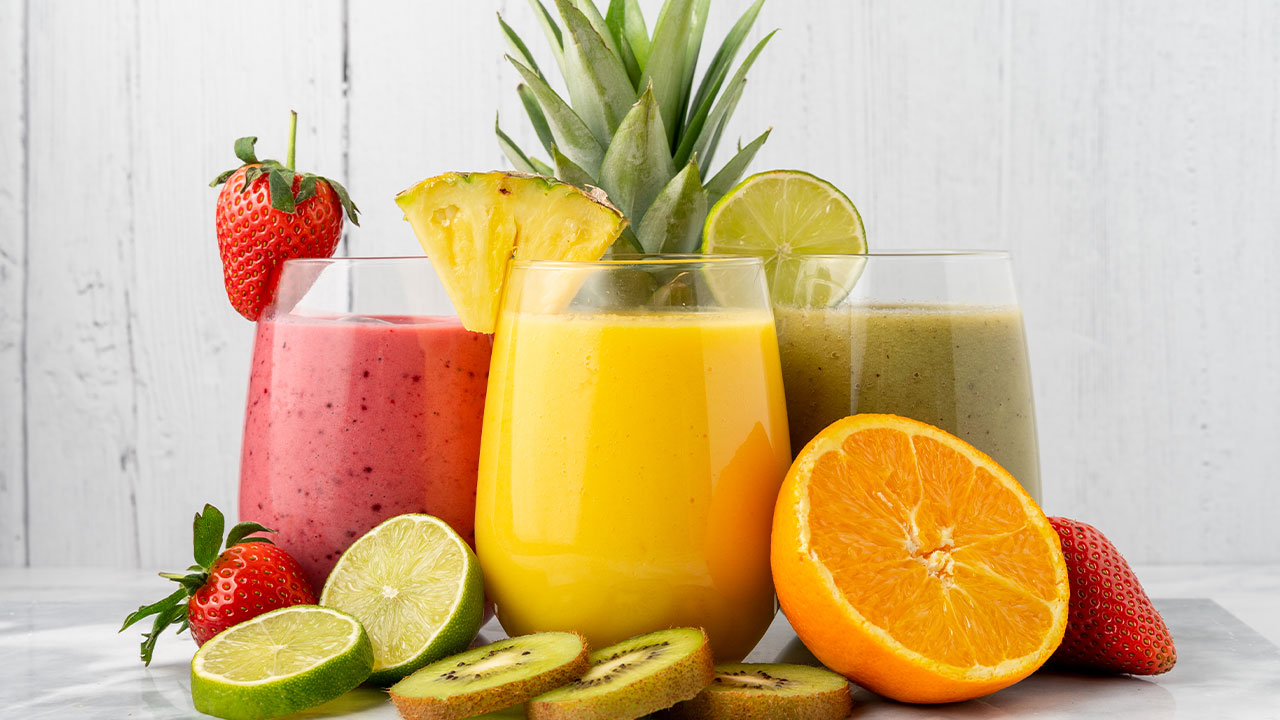The Truth about Sugar in Juices

Hey Angels and Alphas,
In the nutrition world, fruit juices have long been a beloved staple in refrigerators, served in restaurants in all corners of the world. For example, orange juice was pushed as a part of a balanced breakfast, depicted in an endless number of commercials alongside other morning staples. But as the nutrition priorities of people have evolved, placing greater emphasis on sugar intake and calories, people around the world now view orange juice as a high-sugar, high-calorie drink that is better consumed in moderation.
Many of your popular fruit juice choices actually contain the same number of calories as soda – if not more. Even Harvard research has concluded that our bodies metabolize the natural sugar in juice the same way the added sugar in soda.
Considering that added sugar is associated with an increased risk of diabetes, cardiovascular disease, weight gain, and more, this is a sobering fact. It’s even worth noting that the difference between 100 percent juice and sugar-sweetened beverages is significant – the former has other health benefits such as essential vitamins while the latter doesn’t.
SHOULD YOU DRINK JUICE?
Study researchers have concluded that fruit juices are basically very concentrated sources of sugar. They noted that three apples yield just one cup of juice. While it’s difficult to eat three apples in one sitting, it is effortlessly to drink a cup of juice at a time. This excessive intake of sugar can and will lead to potential problems.
Another potential issue is that juiced veggies and fruits are basically stripped of fiber. Fiber aids the digestion process, helps keep us full, and allows our gut health to be healthy and strong. When you replace the fruits and veggies in their whole form with simple juices, you are missing out on all of the fiber you would usually get. And without enough fiber, your blood sugar spikes quickly and then crashes, leading you to crave even more sugar.
If you are going to be drinking juice, researchers suggest you fill your glass with fresh-pressed juice rather than one you find in the store. Many of these packaged juices you will find at the local grocery store have tons of added sugars in addition to their already high sugar content. When you’re making homemade juice, go for an option that is primarily made up of veggies, cutting back on the total sugar content.
WHAT ARE THE HEALTHY ALTERNATIVES?
Sometimes, you might find yourself craving the fresh, sweet taste of fruit. In those situations, you might want to eat that fruit whole. Fruit is abundant in vital nutrients including fiber, vitamins, minerals, and antioxidants.
Smoothies are also another amazing option. Since they are made by blending whole fruits and veggies, the fiber will also stay intact so the entire process at which the body metabolizes is different.
Fiber allows you to curb the blood sugar response of sugar, preventing spikes in insulin that would lead to more cravings and fat retention. And of course, it’s always a good idea to add more water into your diet since you won’t feel the need to replace it with juice or other sugary drinks.
THE BOTTOM LINE IS…
Juices can be a part of a balanced diet, but should generally be consumed in moderation, and when consumed, you should opt for homemade pressed options instead of store-bought varieties.
The Harvard study we referenced above has concluded that individuals who want to take control of their diet should definitely start moderating juice first. If you do love drink a daily cup of juice, try to focus on getting more vegetables in there instead of fruit.
And even better, you can just drink smoothies for a treat that’s similarly delicious since smoothies retain the natural fiber of the fruit. Or just eat fruits whole! Both options will fill you up with fiber, quench your thirst for fruit, and reduce your overall sugar consumption by allowing you to skip on juice altogether.





